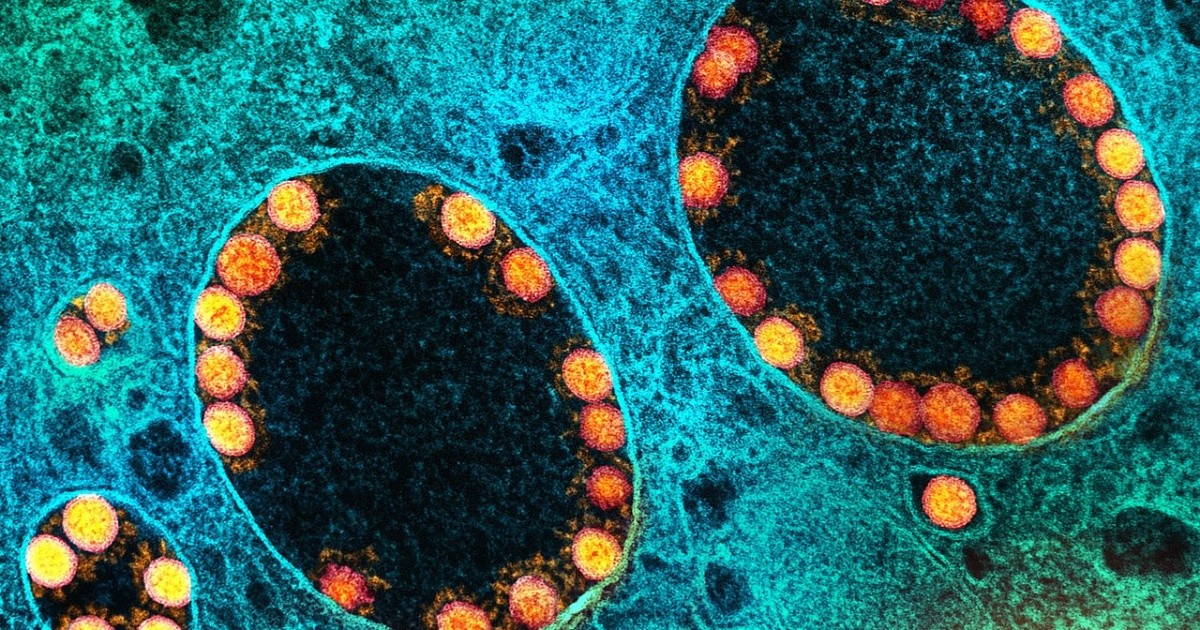The question of whether viruses are living beings has gained enormous interest after the global impact of covid-19. An evolutionary perspective may provide the answer.
in textbooks the virus they are inert beings. They do not meet the criteria that define a living being. The coronavirus, among them, is not a cellular organism, with metabolism, growth and development, homeostasis, response to stimuli and the environment. It only meets two basic characteristics in the definition: it evolves and reproduces, although, not having its own ribosomesit needs the machinery of the cellular host, for example a human being, to reproduce.
With these indications, viruses, especially the coronavirus, are they not living beings?
Despite what the textbooks say, there is no scientific consensus when it comes to including them in the tree of life. A recent publication by researchers Hugh Harris and Colin Hillen in Frontiers in Microbiology makes it obvious.
They are extremely simple
From the description of the first tobacco virus by the scientist Dmitry Ivanovsky by 1892, more than 9,000 virus species had been described in detail, although it is estimated that there are millions of types in the environment. And they are all extremely simple. They are formed by genetic material (RNA or DNA), a protein capsid and, in some cases, also a lipid coat.
Unlike cells, viruses do not have genes common to all of them, so it is not possible to find out its global phylogenetic treethat is, the family relationships between them and their common ancestry, at least based exclusively on genetic material.
Although there is no consensus in the scientific community about the living or inert nature of viruses, there is in stating that they are polyphyleticthat is, they have several evolutionary originsand this supposes an added problem to find that global phylogeny, as well as to give them a place in the tree of life.
When did they appear on Earth? Where do they come from?
Viruses could appear even before cells; may be the result of reduction or degeneration of cellswhich were simplified to accommodate parasitism.
If so, they would be after the first cellular organism and prior to LUCA, the most recent common ancestor of cellular organisms, that is, the most recent common ancestor of the three domains existing today: bacteria, archaea, and eukaryote.
There is also the escape or wandering hypothesis that postulates the origin of viruses as a consequence of the evolution of genes that broke their role inside cells to adopt a parasitic existence.
Whatever its origin, it is closely linked with the evolution of life on Earth, and specifically with the evolution of cell life. None of the three hypotheses alone can fully explain its appearance.
A philosophical question: to be or not to be
Actually, the inclusion or not of viruses among living organisms is a question, at least partially, philosophical, since it depends on the definition of living being that we want to consider.
For the nasa, life it is a self-sufficient chemical system capable of Darwinian evolution. This definition, including self-sufficiency, excludes viruses, since they are not capable of replication on their own, they need the machinery of the host.
The evolutionary biologist Richard Dawkins defined life as the non-random survival outcome of replicating random variables. This Dawkins definition would clearly include viruses among living things.
Patrick Forterre, a researcher at the Pasteur Institute in Paris (France), is a fervent defender of the living nature of viruses. He has proposed to define a living organism as a set of integrated organs (molecular or cellular) that produce individuals that evolve through natural selection.
The evolutionary point of view gives them life
From an evolutionary and ecological point of view, viruses are living beings, or at least they imitate them very well.
Viruses, as we see with the coronavirus, are subject to evolution and natural selection in a way remarkably similar to any other living being. Viruses (hosts) and cells (hosts) coevolve as a result of their antagonistic relationship.
The different viruses can be grouped into species or types of viruses (or at least discrete evolutionary units) that are also subject to taxonomic classification and systematic in higher categories (gender, family, etc.). And they all contain genetic material with which we can infer phylogenies or trees of life. Like the rest of living beings, viruses store their genetic information in these nucleic acids and share the same (or very similar) genetic code.
They reproduce, although not by themselves, as occurs with other parasitic organisms such as endoparasitic bacteria.
A percentage of human genetic material is of viral origin
Viruses have evolved and coevolved with cellular life by participating in regular horizontal transfer events of genetic material with their cellular hosts, probably playing a pivotal role in cell evolution.
Without going too far, it is estimated that a very significant percentage of human genetic material is of viral origin.
If the origin (or origins) of viruses is inseparable from the evolution of cellular life, then how can we exclude them from the tree of life?
All this leads to the conclusion that the coronavirus is, at least from an evolutionary point of view, as alive as you and me.
Martial EscuderoProfessor of the Department of Plant Biology and Ecology, Sevilla University
This article was originally published on The Conversation. read the original.

















